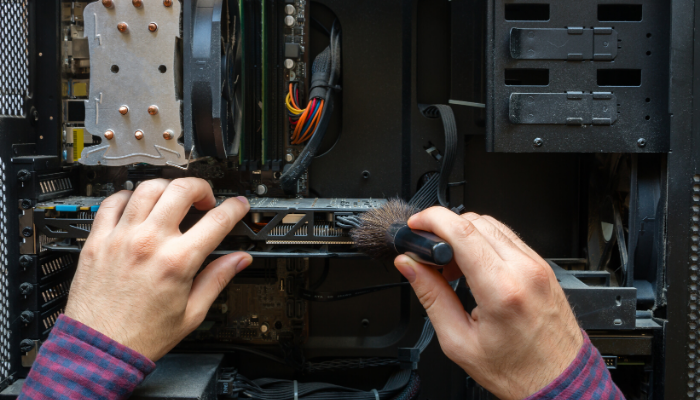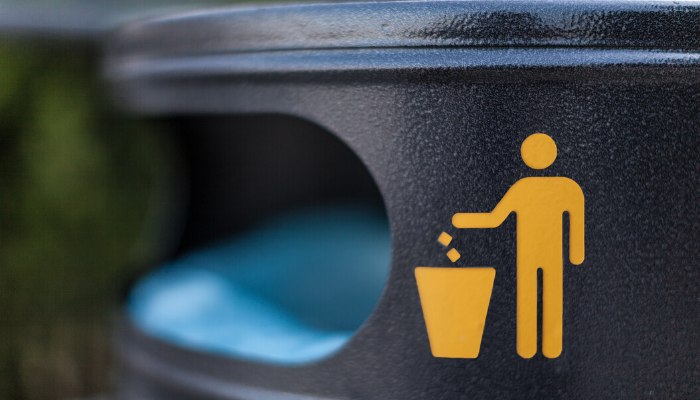
Celebrated on the second Monday in February, National Clean Out Your Computer Day is being commemorated February 12 this year. While spring cleaning doesn’t come until a few more months what better way to start the year than with a spring little cleaning for the devices that you use almost daily: your PC — or more accurately the computers that you hold at the palm of your hand, your smartphone.
If you haven’t already looked into the health of your computer (or smartphone) this may be the perfect time to do so. However, National Clean Out Your Computer Day isn’t just about cleaning out your hard drive.
Physically cleaning your computer such as dusting out the fan vents prevents overheating and helps your operating system run more smoothly. This ultimately protects your data. More so, “cleaning” your software helps ensure that your data is being protected.
Cyberattacks are growing in prominence, and they’re not just targeting businesses. End users are frequent targets with hackers even using users’ PCs to create lethal botnets. Even more common is users coming face to face with malware on daily basis while surfing the web or checking email.
Hackers are launching malware more than ever with 230,000 new malware samples detected daily. To make sure your personal files and information are being guarded, we’ve outlined some important tips below:
Tip #1: Back up your data.
In a study by Barkly 100% of the 300 of organizations surveyed said they were actively backing up their data. If organizations are seeing the value in backing up their data, then it’s probably a good idea for you to back up your data as well. In the past, backing up meant making a copy and moving it to a separate physical location like an external hard drive or thumb drive. These days, however, users can easily back up and store their files on the cloud. Whichever method you choose, consider backing up your computer, or smartphone, at least once per week. If you are constantly adding new files, consider backing up your data even more frequently.
Tip #2: Keep malware at bay.
One of the easiest ways to protect yourself against malware is using antivirus software, which protect against common malware, viruses, and web threats like identity theft and financial theft. Fortunately, both free and paid plans are available for download online. Additionally, when you’re surfing the web, consider using an ad or pop up blocker, a type of software that filters out intrusive ads, potentially blocking malicious sites and trackers. Lastly, if you are website owner, there is more you can do to protect your website against malware.
Tip #3: Delete unused programs and run updates.
 Other useful tips include deleting unused programs and applications and performing routine maintenance. This is extremely important because software that is not regularly updated is susceptible to malware, security bugs, and more. Even better practice is to occasionally go through your apps and programs and delete ones that you are no longer using. This will not only clear up your storage to make your computer run faster but also limit the scope in which malware can hide in. If you own a computer (or smartphone) and are connected to the Internet, there’s a high chance you’ve come across your fair share of malware and other potential security risks. Protecting yourself against these threats begins with managing the health of your computer. National Clean Out Your Computer Day is celebrated to remind you that you should be “cleaning out” both the external and internal parts that secure what makes your devices so valuable in the first place: your data.
Other useful tips include deleting unused programs and applications and performing routine maintenance. This is extremely important because software that is not regularly updated is susceptible to malware, security bugs, and more. Even better practice is to occasionally go through your apps and programs and delete ones that you are no longer using. This will not only clear up your storage to make your computer run faster but also limit the scope in which malware can hide in. If you own a computer (or smartphone) and are connected to the Internet, there’s a high chance you’ve come across your fair share of malware and other potential security risks. Protecting yourself against these threats begins with managing the health of your computer. National Clean Out Your Computer Day is celebrated to remind you that you should be “cleaning out” both the external and internal parts that secure what makes your devices so valuable in the first place: your data.





